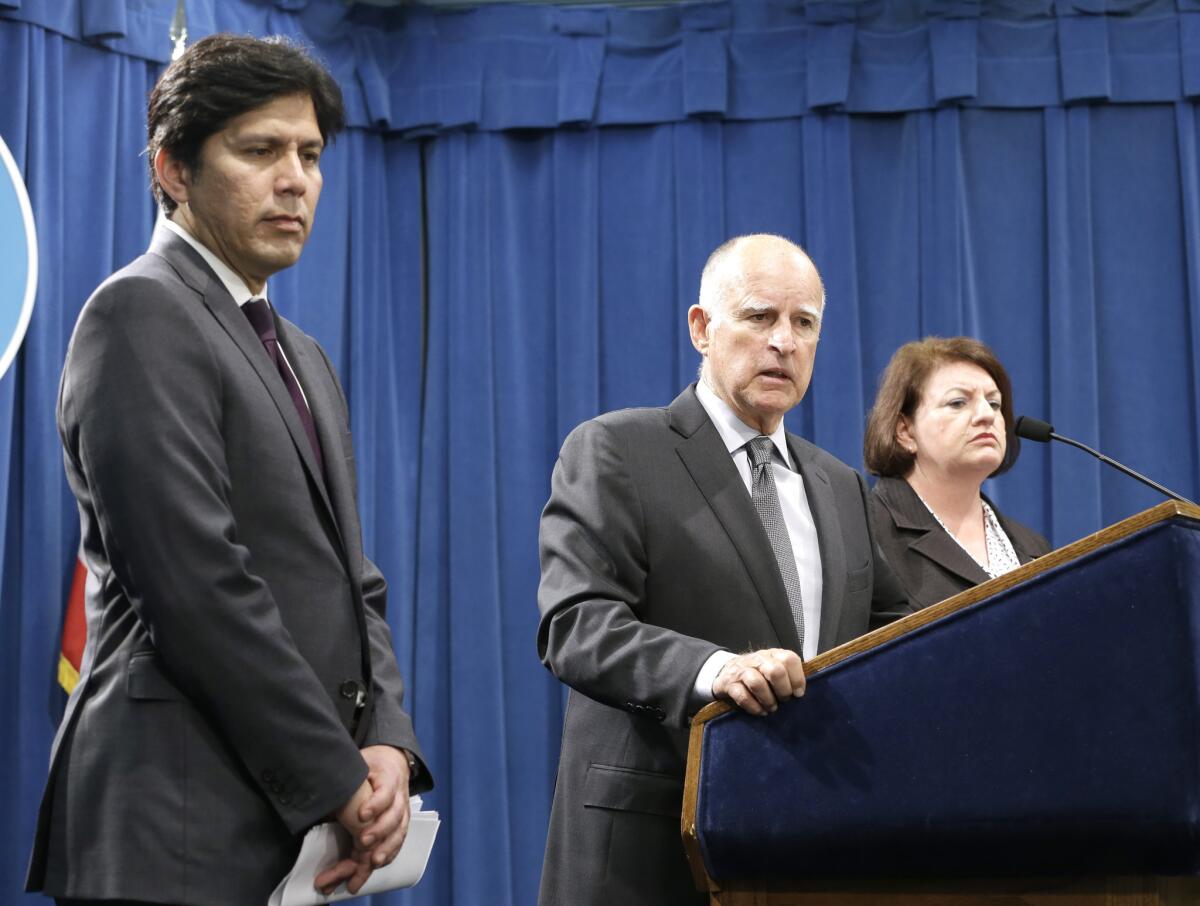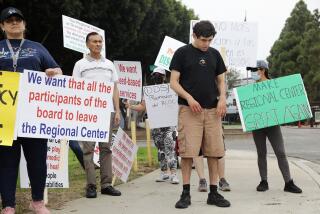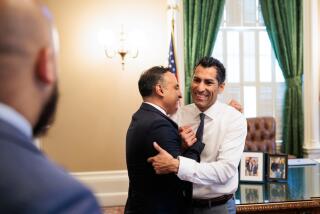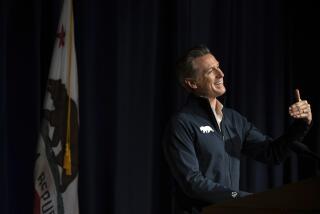Legislature fizzles in special sessions on transportation and healthcare

California Gov. Jerry Brown, with Senate President Pro Tem Kevin de Leon, D-Los Angeles, left, and Assembly Speaker Toni Atkins, D-San Diego, in June.
In the eyes of Martin Weil, it’s not the hard slog of political deal-making that explains why his 26-year old daughter, a quadriplegic with cerebral palsy who is unable to speak, struggles to keep the services she needs.
It’s more like political malpractice.
“It’s not just frustrating, it’s appalling,” said Weil, a Sonoma resident who traveled with his daughter to Sacramento on Thursday.
Weil and his family joined a crowd of a few hundred at the state Capitol to vent their anger over inaction on efforts to boost funding for the developmentally disabled. The program’s long-term finances were supposed to be sorted out in a special session of the Legislature, called by Gov. Jerry Brown almost six months ago.
“We want to get them done,” Brown said at a June news conference in which he announced two special sessions, efforts to find craft new funding plans on healthcare and transportation issues.
Months later, both missions remain unfulfilled.
Legislative committees convened in both special sessions have met only a handful of times since lawmakers decamped to their districts in late summer, and even then the hearings have mostly been information-only events and not ones designed to produce action.
“There’s a lot of events beyond our control,” said Jim Earp, executive consultant to the California Alliance for Jobs, a transportation advocacy group.
The designation of a legislative sessions as “special” is something of a misnomer, at least in the way most people might view them. State law simply says a special session is one convened by the governor on a particular topic, a session that runs concurrently with normal legislative business and can extend beyond the agreed upon calendar of activities.
But in the eyes of activists on health and transportation issues, Brown’s convening of special legislative sessions seemed to be a promise that something extraordinary was going to happen.
“We work hard for our money,” said Desiree Pollard, a Sacramento caregiver for those with developmental disabilities. “We need it now.”
Of the two special sessions called by the governor, the effort on healthcare was the most wide-ranging. Brown asked legislators to rework a soon-to-expire $1.1 billion tax on managed care insurance plans, as well as agree on a new way to pay for in-home care worker wages and restore a 10% cut in developmental disability programs made during the recession years.
No less difficult was the governor’s request for a way to finance about $5.7 billion in unfunded needs for highways, roads, and bridges. Brown’s administration offered a plan that combined an increase in the gas tax with a new $65 annual vehicle fee.
“It had all the elements,” Earp, who also is a member of the California Transportation Commission, said of the governor’s plan.
But in the case of transportation and healthcare, funding through additional revenues -- that is to say, a tax increase -- has remained a non-starter, especially in the eyes of legislative Republicans, who have argued that projected windfalls of tax revenue should be used first.
And there are signs the transportation funding crisis is likely to worsen in the weeks to come. Early next year, an existing and complex state law that regulates fuel taxes is likely to lower the existing levy even further below its current level. That would probably mean a corresponding reduction in transportation funds in the hundreds of millions of dollars.
“When real projects start shutting down or get deprogrammed, that’s when people start realizing we’ve got to fix this.”
Neither special session of the Legislature is under any deadline for the work to be completed. H.D. Palmer, a budget spokesman for Brown, said the governor is likely to provide an update on the healthcare and transportation funding challenges in next month’s proposed budget.
“They remain important,” he said. “And they remain unresolved.”
Legislative leaders have give no indication how much longer they intend to leave the special sessions open, and have only scheduled one final hearing -- on healthcare issues -- next week.
In the meantime, advocates for developmental disability services feel like no one is listening to them, in their struggle to win back additional funding.
“This is a system in crisis,” said Terry Scussel, president of the San Rafael based community care program Marin Ventures. “California can do better than this.”
Follow @johnmyers on Twitter and sign up for our daily Essential Politics newsletter.
ALSO
California leads the nation in environmental legislation
Donald Trump deepens the divide between Republicans and voters overall
Climate talks updates: New wrangling among nations as COP21 negotiators race to finish line
More to Read
Get the L.A. Times Politics newsletter
Deeply reported insights into legislation, politics and policy from Sacramento, Washington and beyond. In your inbox three times per week.
You may occasionally receive promotional content from the Los Angeles Times.







